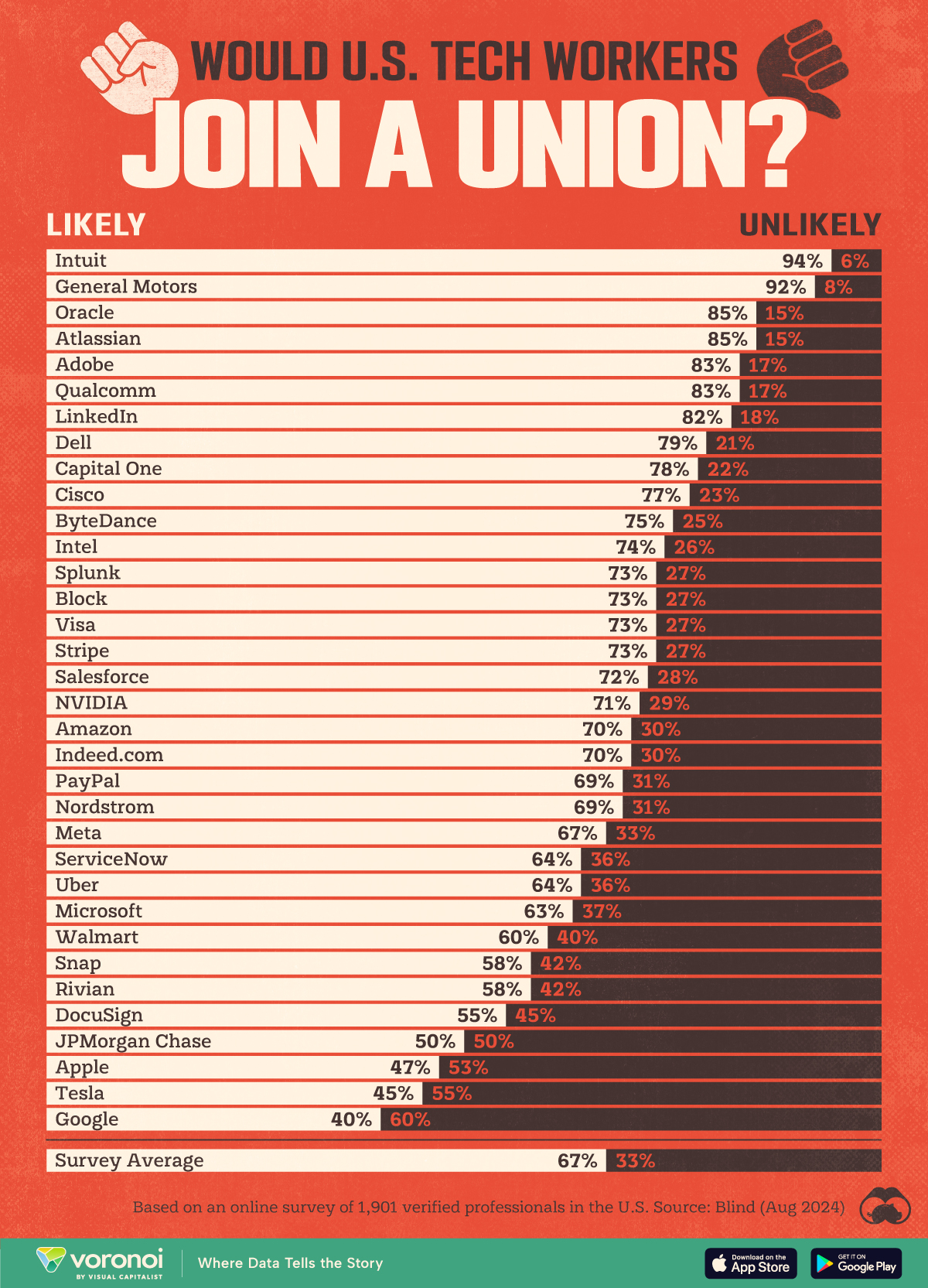this post was submitted on 01 Oct 2024
794 points (98.3% liked)
Technology
62006 readers
3663 users here now
This is a most excellent place for technology news and articles.
Our Rules
- Follow the lemmy.world rules.
- Only tech related content.
- Be excellent to each other!
- Mod approved content bots can post up to 10 articles per day.
- Threads asking for personal tech support may be deleted.
- Politics threads may be removed.
- No memes allowed as posts, OK to post as comments.
- Only approved bots from the list below, to ask if your bot can be added please contact us.
- Check for duplicates before posting, duplicates may be removed
- Accounts 7 days and younger will have their posts automatically removed.
Approved Bots
founded 2 years ago
MODERATORS
you are viewing a single comment's thread
view the rest of the comments
view the rest of the comments

A union lets you have leverage when negotiating for anything with the corpo. Individually you have a little if you're top talent, and none otherwise. Very few people are irreplaceable, some are somewhat painful to replace, the rest are less so. We've been mistaking the tight labor market in this industry for our own self worth but hopefully the last couple of years have helped most of us snap out of it.
Speaking of pay, the structures I've seen at a union university for example have pay scales based on the job and defined pay increases in every job. You know what you're gonna get paid for a position you're applying, and you know what you're gonna get paid years ahead in that job. With that said, a union can negotiate any sort of pay scheme. Perhaps most importantly a union can negotiate to get a much larger portion of the profits for the engineers. You think some folks in tech are paid very well, but if you look at the value they generate, they might not be paid nearly enough. If you think a union might take your 500K salary to 300K while raising some other people's salaries you should consider that a union can take it to 800K or more. Assuming this is happening at one of the wildly profitable companies where this money exists.
And of course a union gives you the leverage to negotiate any other conditions like the ones that you mentioned. On-call, PTO, remote, etc.
Yeah the tech labor market has really proven that the idea of employment contracts being negotiated between equal parties isn't true even in the best of circumstances.
Even when companies are desperate for talent, and willing to spend ridiculous amounts of money on salaries and perks, they are not willing to negotiate on anything outside of that. They still have terrifying contracts with non-compete and damages clauses they could use to wreck your life, no workplace democracy, unpaid overtime and whatever other shit is legal.
But hey! You get free snacks and enough money to buy the dinners you don't time to cook and save up to survive your inevitable burn out!
When you learn that publicly traded companies are mostly obliged to squeeze as much work from you while paying as little, then all the all the puzzle pieces fall into place and all of what you said starts to make perfect sense.